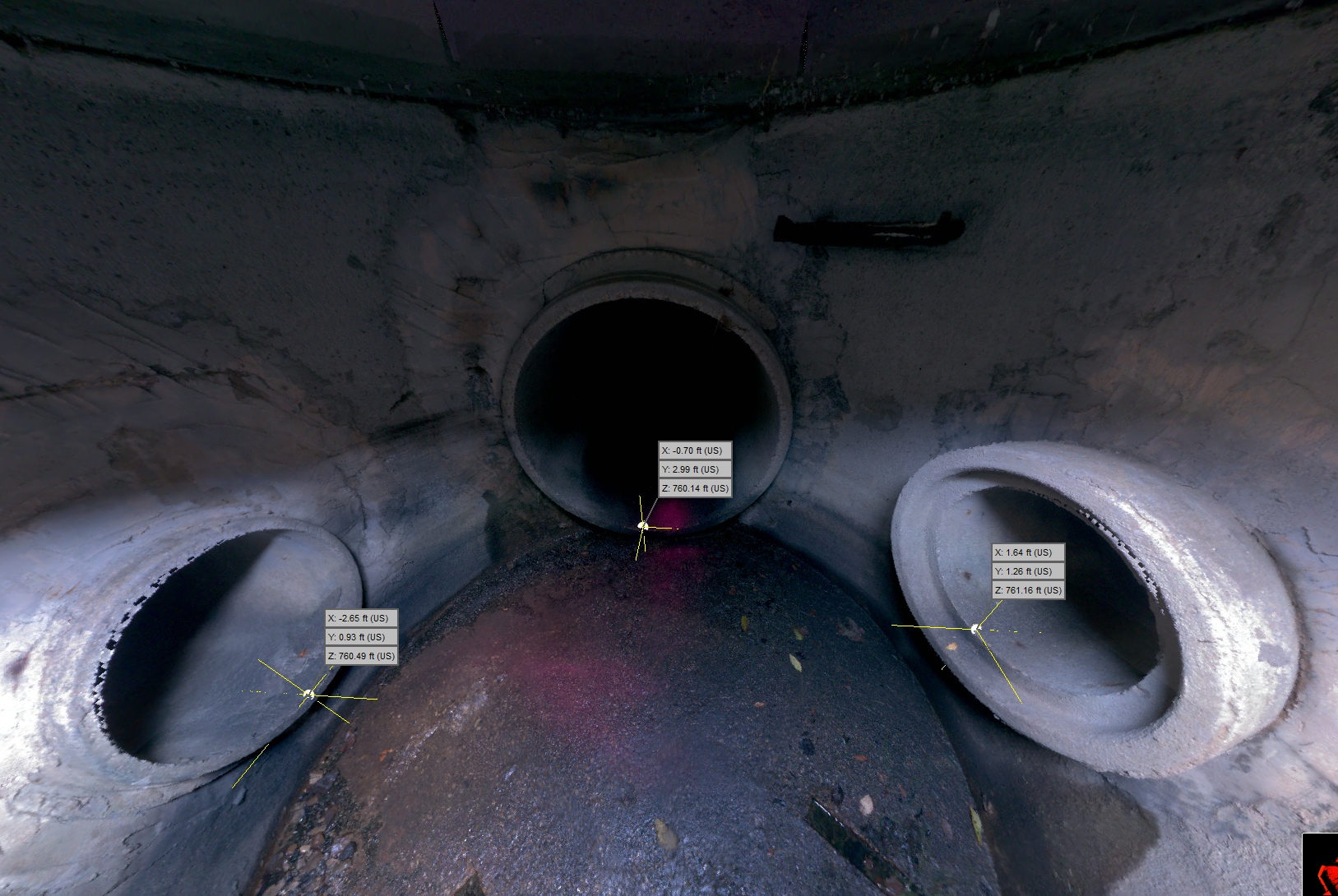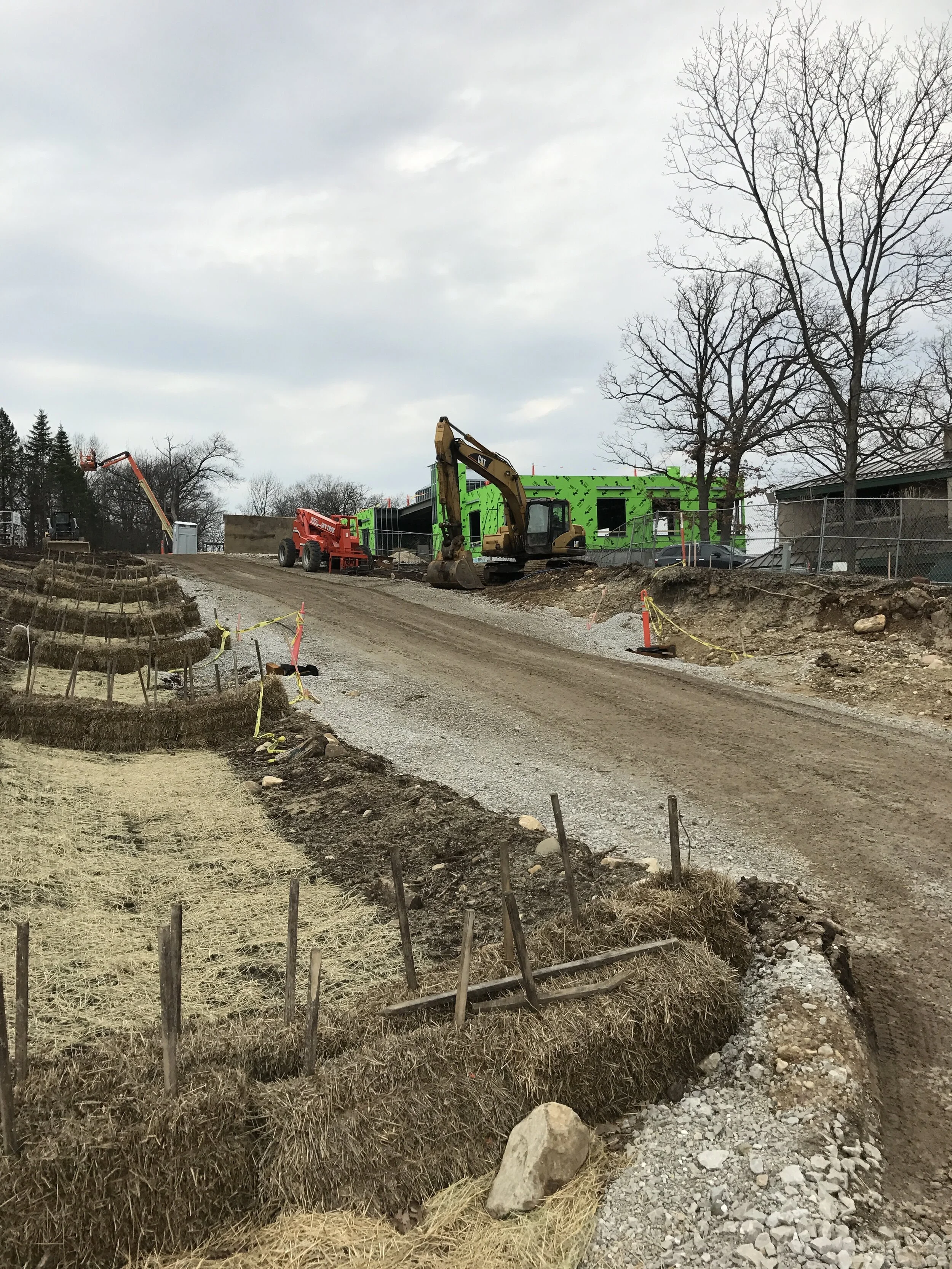Unprecedented federal and state funding has led to a surge of municipal right-of-way permit requests from private utility companies looking to install community-wide fiber and rural broadband network infrastructure. However, projects of this magnitude place considerable demand on municipal staff and community resources. We’ve compiled a checklist of duties and best practices to prepare your community and safeguard your existing infrastructure.
By now you probably know there’s a looming deadline to submit your Lead & Copper Rule Revisions (LCRR) materials inventory to the WDNR by October 16, 2024. And you probably have most of the data … somewhere. But have you stopped to think about your approach to this tall order?
Most municipalities and older developments own wet retention ponds that were built in the early 2000’s. It may be time to evaluate how much sediment has accumulated in those ponds and whether or not it is time to dredge them to remove the accumulated sediment. Learn how to find out if it’s time to dredge your storm water pond.
Municipalities are always looking for ways to improve how they share and communicate with their residents. With the emergence of ArcGIS Hub sites, R/M has helped several communities do just that. Common inquiries by residents about geographical information such as garbage collection, zoning codes, and snowplow routes can be answered through information accessed in their municipality’s Hub site.
Stream restoration is a technique that stabilizes channels in the current environment while working to accomplish common goals like reducing erosion of the channel beds and banks, improving water quality, and improving in-stream habitats. Learn what to look for, funding sources, and how your community can fund from a stream restoration.
The Wisconsin Department of Natural Resources (WDNR) administrative rule process for two common forms of perfluoroalkyl and polyfluoroalkyl substances (PFAS) has ended, resulting in new standards for drinking water and surface water. Learn about the new rules and procedures to prepare your community.
Are you considering filing an electric rate case with the Public Service Commission of Wisconsin (PSCW)? We have outlined the steps to both the municipal electric conventional rate case process as well as the processing of the submitted application.
If train horns are keeping your residents up at night, it might be time to establish a Railroad Quiet Zone in your community. Learn how a Quiet Zone can help improve your residents’ quality of life by reducing the noise pollution caused by train horns without posing a risk to public safety.
All applications for FFY 2023-2026 BIL funding through the STP, Local Bridge, and/or CMAQ Improvement Programs are due by 5:00 PM on Friday, June 3, 2022. Learn what your municipality needs to know to take advantage of the $1.3 billion in federal funding now available for WI transportation projects.
President Biden signed the Bipartisan Infrastructure Bill into law on November 15, 2021. This $1.2 trillion bill includes $550 billion in new spending over the next eight years, roughly doubling the impact of status-quo infrastructure funding levels. Learn how this new funding will impact your next municipal infrastructure project.
The U.S Treasury released final guidance on how municipalities can use American Recovery Plan Act (ARPA) funds. Learn which additional infrastructure projects are eligible for ARPA funding under the final rule.
The US Treasury distributed the first allotment of American Rescue Plan Act (ARPA) funds in June of this year, however, many Wisconsin municipalities are taking a wait-and-see approach when it comes to allocating their payment. However, ARPA Legislation states that municipal relief funds must be allocated by December 2024, and early planning is paramount to getting your projects off the ground on time. Here are answers to the questions we’ve heard most often surrounding ARPA to help keep your planning process moving forward.
The City of Watertown recently embarked on a comprehensive capital improvement plan to rehabilitate their aging storm sewer system. Learn how they used state of the art technology to complete a smarter system inventory.
The U.S. Department of the Treasury recently released updated guidance on the use of American Rescue Plan Act Local Fiscal Recovery Funds. The Interim Final Rule offers an expanded interpretation regarding the types of sewer, water, and broadband infrastructure projects that qualify for funding. Find out if your next infrastructure project is eligible for Local Fiscal Recovery Funding.
The American Rescue Plan Act will provide historic, direct federal payments to all 19,000 municipal governments in the United States. For some municipalities, this relief will offer a once-in-a-generation opportunity for community betterment. To help you consider your options and get a head start on necessary preparation, our experts developed a list of 25 water and sewer related infrastructure improvement projects that may be eligible for ARPA relief funding.
Every odd year, municipalities are required to submit their road ratings to the Wisconsin Department of Transportation. This process leads to more accurate long-term budgeting and planning for road improvements. Watch as the experts from R/M discuss various pavement conditions and share their best practices for rating your roads.
Unmanned Aircraft System (UAS, or drone) technology has become an indispensable survey tool. From more accurate data to better project management, here are 6 ways drones are changing the survey game.
Failure to select and install the appropriate BMPs for your construction project will do more than negatively impact the health of our rivers, streams, and lakes. From hefty fines to project delays, here are the consequences developers and municipalities may face for failure to properly implement erosion and sediment control BMPs.
While no person, business, or industry has managed to navigate the current public health crisis unscathed, municipal staff and local governments are facing incredibly unique challenges in the wake of COVID-19. As we’ve worked with our partner communities to help them keep our roads paved, clean water running, toilets flushing, and life moving during this unprecedented time, we’ve found the following tips to be helpful.
The needs of each school parking lot differ almost as much as the needs of each student. There is no “one-size fits-all” solution to parking lot management, however keeping these 5 considerations in mind will help you stretch your budget and provide safe, reliable access to your school facilities.





















